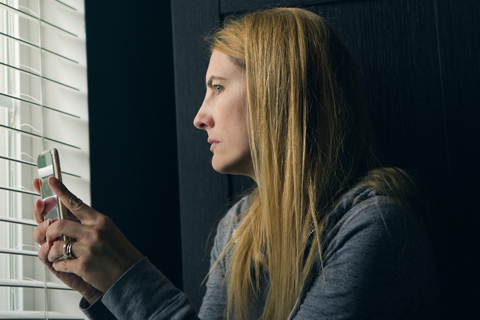Can I secretly record my ex for family law proceedings?

Going through Family Court isn’t always smooth sailing. It’s often long, expensive, and emotionally taxing. If your communications with the other side start to get messy or out of control, sometimes there is panic, and people can be tempted to covertly and secretly record conversations with the other party in an attempt to build evidence of wrongdoing. It is important to know that there are legal limitations as to whether those recordings can or will be considered in Court and whether they were legally taken at all.
What is a secret recording?
Thanks to the advancements of technology, it has never been easier to record conversations with video or sound recording. However, if you haven’t started the conversation with “I’m recording this conversation” then chances are, you’re engaging in a secret recording.
A secret recording of a conversation is any audio or visual recording where the other person hasn’t explicitly consented or implied that they consent to being recorded.
Implied consent includes having security cameras recording around your property. You need sufficient reason to believe that your ex is aware they’re being recorded in order for implied consent to be assumed.
Pursuant to the Surveillance Devices Act in your state or territory, it is a criminal offence to make an audio recording of a private conversation or visual recording of a private activity without the consent of the parties involved.
What does the family law say about secretly recorded conversations?
Under the Family Law Act 1975 (“the Act”), the usual rules of evidence do not apply to child-related proceedings, and the Court has discretion over the admissibility of evidence presented.
Generally, any evidence that is acquired improperly or in violation of Australian law is not admissible in family law cases unless the value of admitting the evidence outweighs the objectionable value of admitting evidence obtained in such a way.
Further, the Judicial decision maker (for example, the Judge if your matter has gone to trial) will have to give consideration to any weight they may apply to the recording, particularly if the other party is not aware they are being recorded and yet the recorder is participating in the conversation, knowing the recording is taking place. It can be criticised as an “evidence gathering exercise” and rather than be considered as helpful evidence, really backfire on the party who recorded the communications.
The Court will consider the admissibility of a secret recording and take into account:
-
whether you made the recording;
-
why you made the recording;
-
whether the recording breaches any privacy laws (including State/Territory Federal laws) and without any of the exceptions in the Surveillance Devices Act;
-
whether the recording is misleading;
-
whether the recording is unfairly prejudicial or harmful to those in it.
In parenting disputes, there have been many cases where a parent has secretly recorded the other parent by planting recording devices in the children’s belongings (e.g. plush toys). The Federal Circuit and Family Court of Australia and the Family Court of Western Australia (“the Family Court”) has criticised these actions on the basis that it interferes with a child’s right to have a private conversation with their parent without fear of being recorded.
Are there any exceptions to secretly recording your ex during family law proceedings?
There are some instances where secretly recording a conversation is admissible as evidence in family law cases. These include:
-
when there is a genuine fear or risk of safety;
-
property is at risk;
-
you are the primary participant in the conversation and there is limited prejudice to the other party.
Essentially, the intent behind the recording is a major factor the Family Court will consider.
Examples where the Family Court has accepted secretly recorded evidence
On occasion, the Family Court has allowed secretly recorded evidence in some cases where the recording was reasonably necessary to protect lawful interests. Both examples are parenting disputes.
In the case of Corby & Corby [2015] FCCA 1009, the Family Court considered the use of 4 secret recordings between the parties in a parenting matter. The mother was alleging that the father was sexually coercive, intimidating and physically violent during their relationship.
In this case, the Family Court allowed the recordings into evidence and said that:
“the mother had the right to protect her interests not to be intimidated or harassed, and not to be forced to respond to the father’s demands for sexual activity”.
In another case, Huffman & Gorman [2014] FamCA 150, the father had secretly recorded a conversation between himself and the mother. The father was seeking to prove that the mother was controlling and violent towards the children, causing them psychological harm.
The Family Court did not find that the recording was reasonably necessary to protect the father’s lawful interest. However, The Family Court still regarded the recording as admissible on the basis that:
“the desirability of admitting evidence of family violence… outweighs the undesirability of admitting evidence which was obtained unlawfully”.
The possibility of a negative outcome if you secretly record
Aside from the practice of secretly recording people being a criminal offence and potentially unsafe in many contexts, it can also backfire on parties who try to present it in the Family Court.
Firstly, if the Family Court does not accept there is probative value in a secret recording, the person who made the recording may be exposed to a referral to Police for a breach of the relevant state or territory legislation.
Although you may think the contents of the recording supports your case, it may actually be the opposite from the perspective of the Family Court and experts. For example, the recording could reveal a lack of insight, inappropriate questioning of children, or an unwillingness to participate in a co-parenting relationship.
Recordings can also impact on a party’s credibility if they are selective with only producing parts of a recording that favour themselves. Under the rules of disclosure in family law cases, a relevant recording in the possession or control of a party should be disclosed to the other party, whether it is favourable or not.
How can a family lawyer help?
Accepting secret recording into evidence is considered on a case-by-case basis by the Family Court. It’s best to discuss your situation with a family lawyer before you consider secretly recording your former partner. If you know or suspect you are being secretly recorded, you should also seek advice about your options.
If you have been charged with a criminal offence relating to secret recordings, we encourage you to seek advice from a lawyer with experience in criminal law. We regularly work with reputable criminal lawyers to assist our clients. If you need a referral, please do not hesitate to contact us.
Contacting Meillon & Bright
Family Lawyers Perth & Sydney
The information contained in this article is of general nature and should not be construed as legal advice. If you require further information, advice or assistance for your specific circumstances, please contact Meillon & Bright Family Lawyers.

